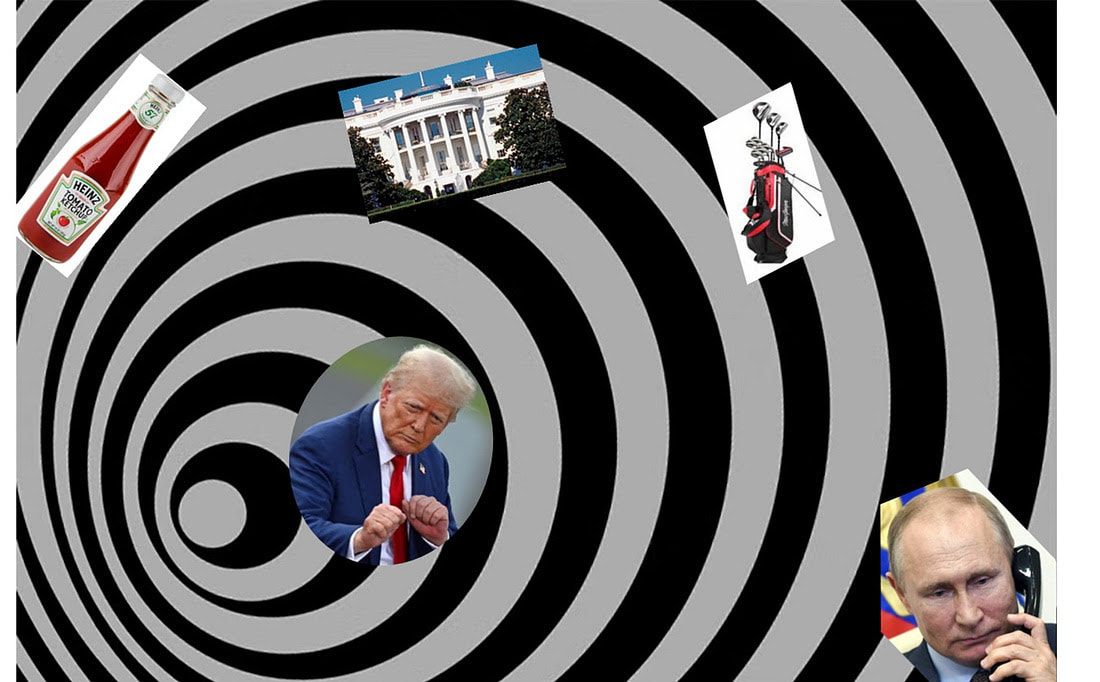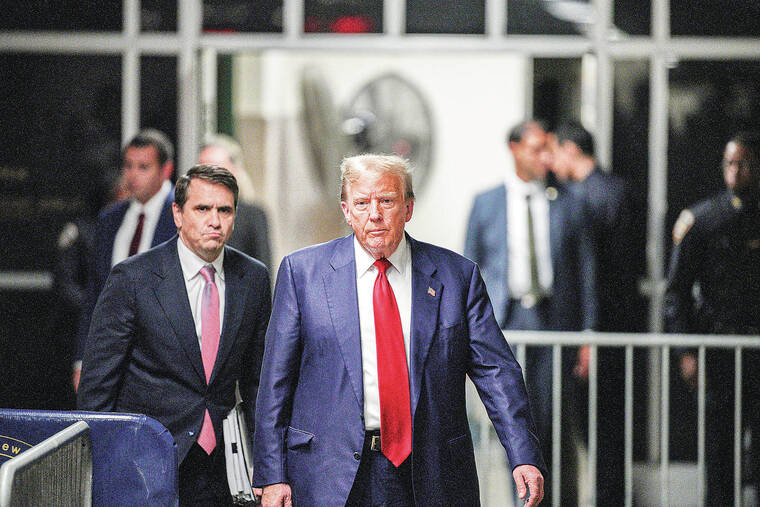Chasms In the MAGA Movement
The legacy media and many people see the Epstein story primarily as a conspiracy between Epstein, Ghislaine Maxwell, his girlfriend and fellow human trafficker, and some rich and powerful men who participated in the trafficking and sexual abuse. Many of us are repulsed by the thought of an old man sexually molesting a young girl. The MAGA movement - a key part of Trump’s followers, along with fascists, Christian nationalists, opportunists, QAnon, and con artists - has painted the Epstein tale as a conspiracy by liberal elites and the administrative deep state to sexually abuse Christian girls. Epstein fits into MAGA’s preconceived beliefs about the existence of a corrupt and evil global elite. Trump justified his worthiness to lead the MAGA movement and become president by pledging to end the exploitation and evil represented by child sex trafficking. Now, however, Trump has shown an unwillingness to keep his promise to release all the Epstein files. The MAGA movement wants the Epstein files to find out the extent of the corruption and immorality that elites have engaged in, and who in the deep state has aided them. Of course, many of the MAGA faithful assumed that Democrats were hiding the files to protect elite Democrats. It is now clear that Trump and Republicans also want to hide facts about Epstein. As a result, many of his followers are questioning Trump’s leadership of the MAGA movement. Sixty-three percent of voters disapprove of Trump’s handling of the Epstein files, and his overall approval among white voters has dropped to 47 percent, down from 50 percent over the last month, a new low among white voters.
For the MAGA following, Epstein signifies the entrenched power structure comprised of bankers, wealthy businesspeople, media moguls, politicians, and other corrupt and self-interested elites. The part of Trump’s supporters who are antisemitic are also motivated by centuries-old antisemitic tropes of Jews defiling Christian girls. Thus, Epstein represents a perfect representation of elites who differ from the populist view of “the people.” Populists are perceived as virtuous, hardworking, and moral. The MAGA followers believe that the capture of the government by the deep state has prevented the populist recovery of the country since Trump. Trump stands for someone who is able to upend the deep state, defeat the elites, and return the country to its moral and Christian roots. Trump’s divorces, philandering, and cheating are outweighed by his knowledge of how elite corruption works and his fortune that makes him immune to self-interested corruption.
We Don’t Know the Epstein’s Complete Story…and It Doesn’t Matter
Political strategists of the pro-democracy movement have shown interest in the Epstein conspiracy because it threatens to enlarge the gap between Trump and parts of the MAGA movement. Of course, not all of Trump’s followers are likely to be swayed by the Epstein story. Nonetheless, the Epstein case seems to be the most significant opportunity for parts of the MAGA movement to peel away from Trump. Although previous sexual scandals have not stuck to Trump, the Epstein case is different. Trump’s other scandals have concerned his behavior and morals. Epstein calls into question Trump’s relationship with the MAGA movement. Many of Trump’s appointees and members of his inner circle can only claim to be populists by virtue of their mimicry of Trump’s racist, misogynistic, and anti-immigration positions. If Trump is unwilling to point out corrupt members of the elite by releasing the Epstein file, then he may not be steadfast enough to lead the MAGA movement.
Also, the pro-democracy movement is interested in the Epstein files because they may reveal who was being blackmailed or bought off by Epstein. And although Epstein was into sex trafficking of minors and blackmail, the scope of his finances, governmental contacts, and associations with various intelligence agencies, foreign and domestic, makes his relations worth knowing about. For example, Jeffrey Epstein, a poor kid from Coney Island, N.Y., talented in mathematics, attended Cooper Union, and later studied mathematics at New York University. After leaving NYU without a degree, Epstein was hired as a teacher at the elite private Dalton School by its Headmaster, Donald Barr, a former U.S. intelligence agent and the father of Attorney General Robert Barr during Trump’s first term. In 1976, after two years at Dalton, Epstein was fired, ostensibly due to poor performance as a teacher. However, several students have since noted that Epstein regularly attended student parties and showed interest in several female students.
After leaving the Dalton School, Epstein was hired as a floor trader by Alan Greenberg, a partner and later the CEO of Bear Stearns. With the help of Greenberg, Epstein rose quickly at Bear Stearns and began working in the brokerage department, helping wealthy clients minimize their tax liabilities. In 1981, Epstein left Bear Stearns following an investigation by the SEC into insider trading at the company. Although it is possible that Epstein was covering for his mentor, Greenberg, he had to leave Bear Stearns. During the period between 1981 and 1988, Epstein knew and associated with Adnan Khashoggi, an arms dealer who was involved in the Iran-Contra affair and other arms dealers. These other arms dealers included Ghislaine Maxwell and her father, Robert. To aid his business ventures, Khashoggi provided women to act as sexual bait and lures for blackmail to a following of politicians, businessmen, and celebrities.
Over the next 17 to 19 years, Epstein may have earned over $600 million. How he obtained this fortune is not known. Epstein may have continued gun running, money laundering, or engaging in other illegal financial schemes. One analyst suggested that with Epstein, the Israeli secret service, MOSSAD, reprised its previous approach in infiltrating the Syrian military. In that case, MOSSAD created an identity of a rich Argentinian playboy who went to Syria to sell weapons. As a part of his Playboy identity, the agent threw lavish sex parties in his home where he entertained high-ranking Syrian military officers with women and liquor. It is plausible that Epstein may have played the role of a fictitious billionaire financier to ingratiate himself with billionaires. He may have engaged in a variety of financial schemes that included providing underage girls to businessmen and then blackmailing them. Of course, he may have engaged in all three activities.
In 2005, the Palm Beach Police began investigating Epstein for sexually abusing a 14-year-old child, and in 2008, Epstein pleaded guilty to procuring a child for prostitution and soliciting a prostitute. Fourteen years later, Epstein was arrested again on federal charges of sex trafficking minors. Officially, he committed suicide in his jail cell on August 10, 2019. However, numerous questions remain about his death, and many observers believe he was murdered.
What Democrats Must Do
If Democrats are to gain an electoral advantage from the Epstein story, they must use the story as a platform for messaging. This messaging tactic contradicts the political dictum of avoiding interference in an opponent’s troubles because the interference could become a distraction. The widespread interest in the Epstein story, however, can capture media attention, a difficult feat for a political party out of power to accomplish. The message should not express outrage or moral indignation about human trafficking. The abuse of underage girls is morally reprehensible, but should not be the point of the messaging. Instead, the message should go to the heart of the conflict between Trump and his MAGA followers. Those followers trust Trump because they believe he hates the corrupt elites and deep state, like they do. Trump’s failure to release the Epstein files would be evidence that Trump has betrayed them. Democrats should repeatedly say that Trump has betrayed his voters.
To fully leverage the aftermath of Epstein, Democratic messaging should stress several different points. First, Democrats need to emphasize that Trump’s broken promise to release the Epstein files augurs more broken promises. For example, Trump has also promised to use tariffs to cure the country’s economic ills. Because his followers have had faith in Trump’s promises, they have been reluctant to complain too loudly about what many of them believe to be a collapsing economy. Is that collapse to help the elites? Second, Democrats need to focus on how withholding the Epstein files supports the corruption of the elites who may be named in those files. Not only might prominent Democrats be named in the files, but Trump and his cronies might also be named, showing that the corruption MAGA wants to fight is in both political parties. Third, Democrats should focus on the background of the girls exploited by Epstein and Maxwell. These girls were from the same class as the MAGA followers. And they were exploited by and for the elites.
Democrats should not message about the harm that was done to these victims or how evil Epstein and Maxwell were. All who hear of what Epstein and Maxwell are revulsed without prompting. Messages about their immoral criminality distract from political messages and distract from Trump’s failure to support MAGA values.















